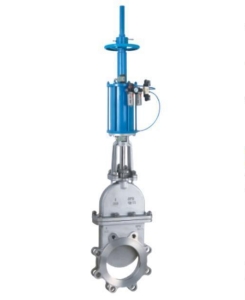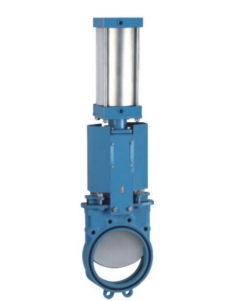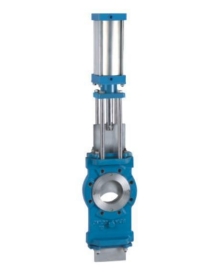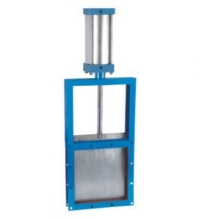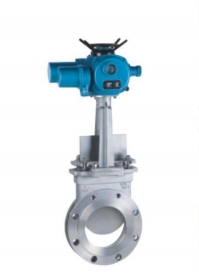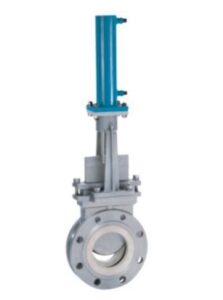
With the society’s continuous attention to water resource management, water treatment engineering plays a key role in guaranteeing the safety of human water use and realizing the sustainable development of the environment. As an important part of the water treatment system, the comprehensive application of valves in which not only provides engineers with technical challenges, but also the entire water treatment process brings excellent advantages. In this paper, we will discuss the wide range of valves in the water treatment project and the advantages it brings in many ways.
I - The applications of valves in the water treatment engineering
Valves play a vital role in the field of water treatment and their applications cover several stages of the water treatment process. Following are some of the major applications of valves in water treatment:
Inlet Valves: In a water treatment plant or other water treatment facility, inlet valves are used to control the entry of water. This ensures the start of the water treatment process and allows the operator to adjust the water flow as required.
Adjustment Valves: During the water treatment process, adjustments need to be made based on factors such as water quality, pressure and flow rate. Regulating valves are used to accurately control the flow of media to ensure stability and effectiveness of the various steps in the water treatment process.
Drain valves: In the water treatment process, wastewater or waste liquids may be generated. Drainage valves are used to export or discharge the wastewater to the appropriate treatment system to ensure the continuity of the treatment process.
Filtration Valves: Filtration systems commonly used in water treatment require periodic cleaning or replacement of filter cartridges. Filtration valves are used to control the operation of the filtration system so that maintenance can be carried out without interrupting the water treatment process.
Back flow Prevention Valves: Critical in preventing water contamination, back flow prevention valves are used to prevent treated water from re-entering the untreated system and to ensure that the water quality meets the required standards.
DisinfeCtant Delivery Valves: In some cases, it is necessary to deliver a disinfectant, such as chlorine or sodium hypochlorite, to the water treatment system. Valves are used to control the exact amount of disinfectant to ensure that water quality meets sanitary standards.
Flushing Valves: In a water treatment system, some equipment or piping needs to be flushed periodically to prevent dirt buildup. Flushing valves are used to control the flow of flushing water to maintain a clean and efficient operation of the system.
Ⅱ. The advantages of the valve in the water treatment project.
1. Flow control and regulation
Water treatment system, the flow of accurate control to ensure that the treatment effect is critical. Valve as a key regulator in the fluid pipeline, through a reasonable opening control, to ensure that the water flow can be accurately adjusted. In the treatment of uneven water quality, flow rate fluctuations, the role of the valve is more significant, providing the basis for smooth operation of the system. Engineers need to choose the right type of valve according to the specific water treatment scenario to meet the needs of flow regulation.
2. Pressure regulation and protection
Water treatment system, the reasonable regulation of pressure is essential to maintain the normal operation of the system. Valves can effectively maintain the normal operating pressure in the system through the regulation of fluid flow. At the same time, the valve design also takes into account the system pressure fluctuations in the case of providing protection mechanisms to avoid excessive pressure caused by equipment damage or system failure. Engineers need to have a deep understanding of the system pressure characteristics to ensure that the valves will work optimally under all operating conditions.
3. Sludge treatment and discharge control
Sludge generated during water treatment is a major treatment challenge. Valves play a key role in sludge transfer, treatment and discharge control. Through the proper configuration of valves, engineers can realize the precise control of sludge flow, to ensure that the system can achieve the best results in the treatment of wastewater, and to meet the requirements of environmental regulations. Valve selection needs to take into account the characteristics of the treatment medium, as well as the composition and nature of the sludge.
4. Automated control systems
With the continuous development of science and technology, water treatment systems also tend to automation and intelligence. Valve as the core component of the automation control system, through the sensor and feedback mechanism, to realize the real-time monitoring and adjustment of the water treatment process. This not only improves the response speed of the system, but also reduces operating costs, making the entire water treatment process more efficient and sustainable. Engineers need to pay attention to the latest developments in automation technology in order to continuously optimize the intelligent control capability of the water treatment system.
5. Prevent back flow and contamination
Water treatment systems must prevent back flow of contaminants to ensure that the quality of treated water remains standard. Valves prevent situations that could lead to cross-contamination through effective back flow protection mechanisms. This is vital for the quality assurance of drinking and industrial water and demonstrates the irreplaceable nature of valves in water management. Engineers need to select the appropriate type of valve according to the drainage structure and treatment requirements of the system to ensure the reliability of back flow protection.
6. Material selection and corrosion resistance
In the water treatment environment, valves are exposed to a variety of chemicals and corrosive media. Therefore, the choice of material is critical to the performance and life of the valve. Engineers need to select corrosion-resistant materials according to specific water treatment scenarios to ensure that the valve operates stably for a long time and reduce maintenance and replacement costs. Considering the variation of different water quality and treatment media, engineers also need to focus on the maintainability and sustainability of materials.
7. Energy saving and environmental protection
Valves in the water treatment system can bring the rational use of energy saving and environmental benefits. Through flow regulation, pressure optimization and other means, valves help the system to reduce energy consumption and reduce the load on the environment. Engineers can further improve the energy efficiency of the system through intelligent control systems to achieve the goal of sustainable development. For engineers, energy saving and environmental protection is not only a technical challenge, but also a social responsibility, through the optimization of the design and application of valves, in order to promote the water treatment engineering towards a more environmentally friendly and sustainable direction to contribute.

Conclusion
As a valve manufacturer, we understand the critical position of valves in water treatment systems. Through the application of flow control, pressure regulation, sludge treatment, automation control and pollution prevention, valves provide solid technical support for the stable operation and efficient treatment of water treatment systems.
BCST Group ( https://www.bcstvalve.com/ ) specializes in the research and development of calibration, pressure, flow, level, temperature, display and other high-performance instrumentation. For a long time, we have been trusted by many industries and enterprises, such as petroleum, electric power, chemical, pharmaceutical, coal mine, metallurgy and so on. If you are interested in our valves, please visit our website for consultation, we will provide you with the best service.

